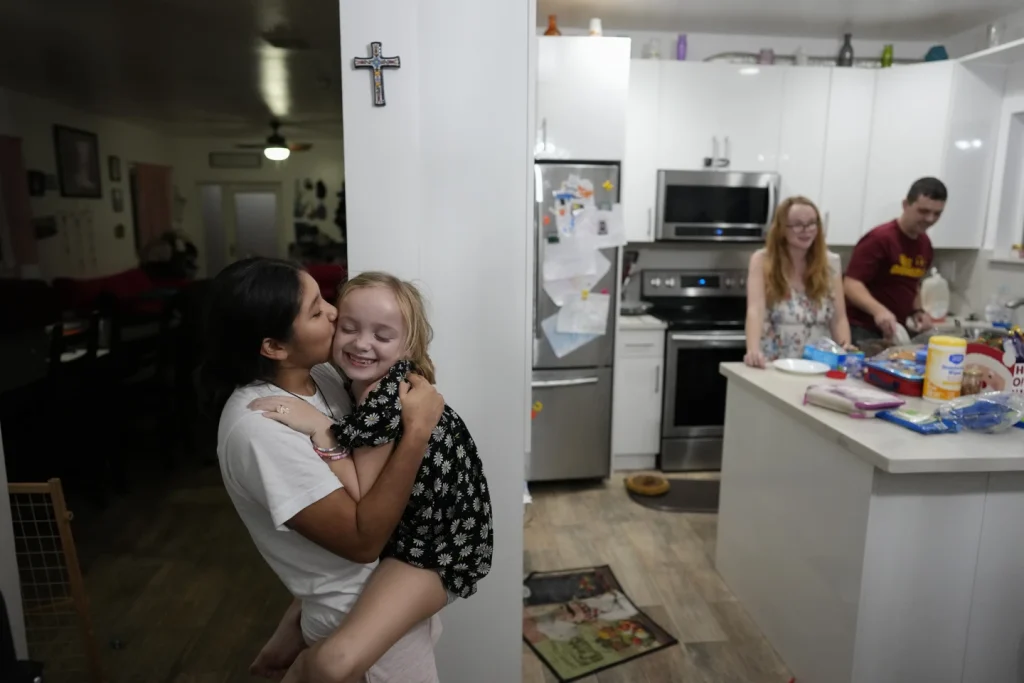The influx of unaccompanied minors crossing the southern U.S. border has garnered significant attention in recent times, prompting a national debate on the need for changes in asylum laws and the provision of support for these vulnerable children.
One such heartwarming story is that of Sol, a 14-year-old eighth grader from Argentina, who found herself in a new country with limited English proficiency but excelled in her studies to earn a special gift from her foster parents – a dog named Cosmo.
Sol’s journey is emblematic of the experiences of tens of thousands of children who arrive in the United States without a parent, seeking safety and stability in the midst of a surge in immigration.
The challenges they face are immense, from language barriers to navigating unfamiliar systems and environments. However, the resilience and determination exhibited by these young individuals are truly remarkable.
Amidst this backdrop, faith-based and community organizations have stepped up their efforts to recruit foster families willing to open their homes and hearts to these children.
The goal is to alleviate the strain on government facilities and provide a nurturing environment for these minors as they await resolution of their immigration status.
The statistics are sobering, with nearly 140,000 unaccompanied minors encountered at the border with Mexico in fiscal year 2023, and close to 10,000 still in the custody of the Department of Health and Human Services’ Office of Refugee Resettlement.
Mónica Farías, who leads the Unaccompanied Refugee Minors Program for Catholic Charities of the Archdiocese of Miami, aptly captures the magnitude of the situation, emphasizing the urgent need for more foster parents.
The outreach efforts have been extensive, with program leaders actively engaging with churches and community organizations to identify and support families willing to embrace children like Sol, who are in need of stability and care.
The story of Andy and Caroline Hazelton, a couple in their early 30s residing in a Miami suburb, serves as a poignant example of the impact foster families can have on the lives of these young migrants.
Despite already raising three biological daughters, the Hazeltons have opened their home to several migrant minors over the past four years, providing them with a safe and nurturing environment.
Their selfless commitment to supporting these children, including those from Afghanistan and Central America, underscores the power of compassion and solidarity in addressing the needs of unaccompanied minors.
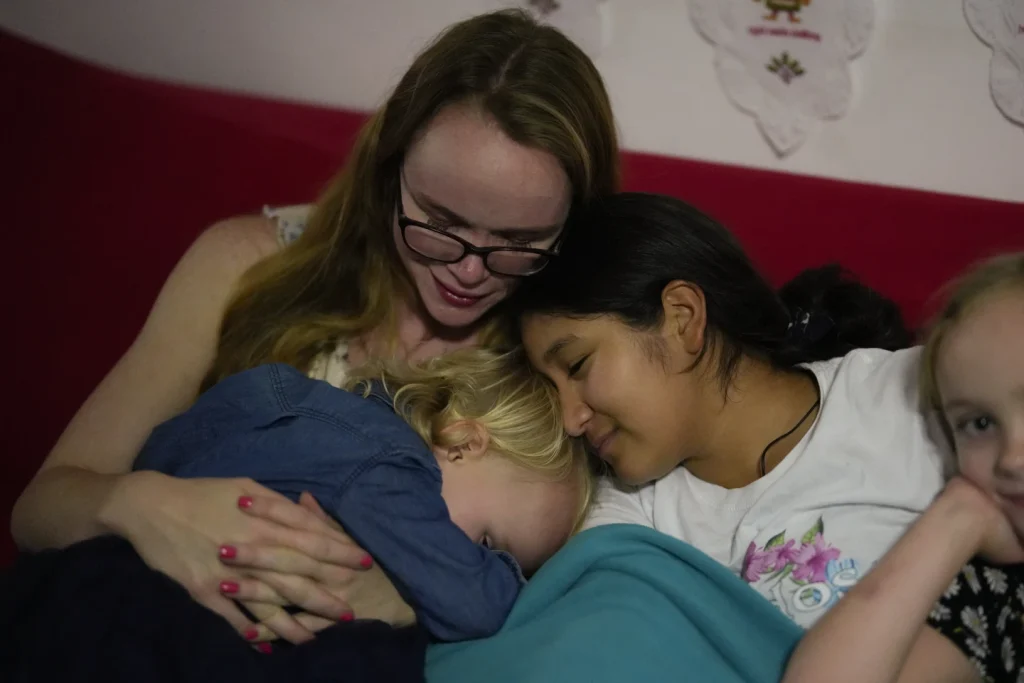
In conclusion, the plight of unaccompanied minors arriving in the United States is a complex and pressing issue that demands a multifaceted response.
Through the collective efforts of faith-based organizations, community groups, and compassionate individuals like the Hazeltons, there is hope for these children to find stability and support in their new environment.
As the national dialogue on immigration and asylum laws continues, it is imperative to prioritize the well-being of these vulnerable minors and recognize the invaluable contributions of foster families in providing them with a sense of belonging and security.
In a world fraught with political division and humanitarian crises, the unwavering spirit of compassion and selflessness exhibited by foster families stands as a beacon of hope and solidarity.
The poignant narratives of individuals like Andy and Caroline Hazelton, Carlos Zubizarreta, and Jason Herring underscore the profound impact of faith, empathy, and altruism in the realm of immigration and child welfare.
Their stories illuminate the transformative power of love and support in the lives of vulnerable children, transcending barriers of nationality, religion, and circumstance.
The Hazeltons, like numerous foster families, epitomize a steadfast dedication to the well-being of children in need, guided by the ethos of selflessly aiding others as an expression of their faith.
Their response to the Gospel exhortation of helping others as one would help Jesus resonates deeply, inspiring a sense of moral duty and compassion that transcends political rhetoric and divisive discourse.
By focusing on the fundamental act of assisting children in need, they embody the essence of humanitarianism, emphasizing the universal value of empathy and support for those facing adversity.
The diverse tapestry of experiences within foster families is vividly illustrated by the Hazeltons’ account of embracing children from various cultural and religious backgrounds, fostering an environment of inclusivity and warmth.
The heartwarming anecdote of Muslim Afghan teens partaking in Christmas festivities, and the emotional reunion of foster children with their birth families, encapsulate the profound impact of love and acceptance in transcending cultural barriers and nurturing a sense of belonging.
The enduring commitment of foster families, as exemplified by Carlos Zubizarreta’s decades-long dedication to fostering children, underscores the profound emotional investment and sacrificial love inherent in their noble vocation.
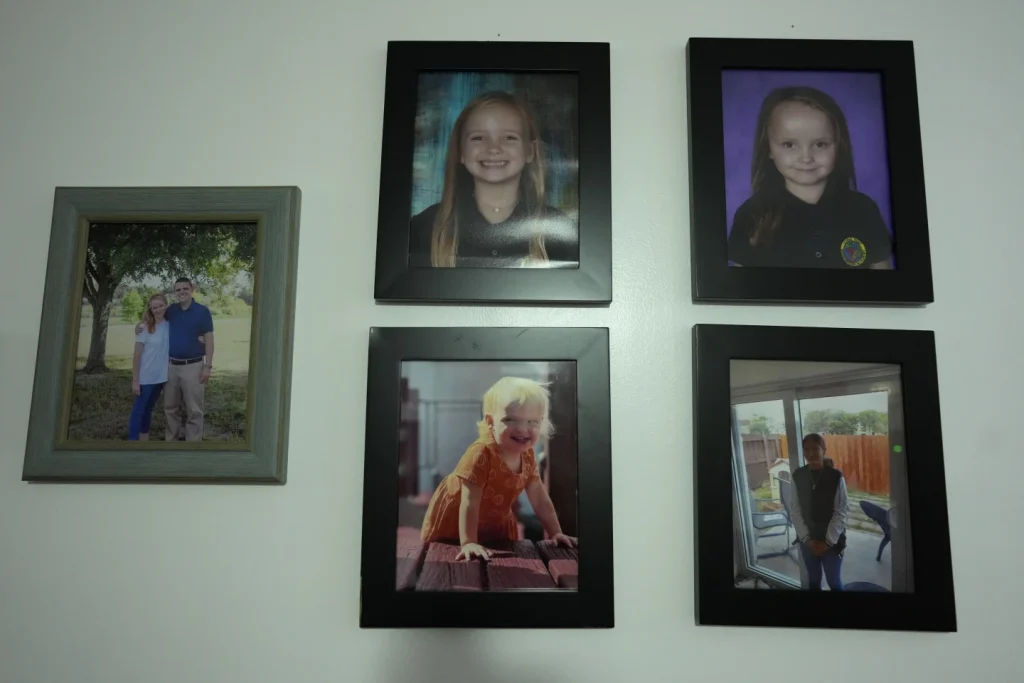
His poignant reflection on the bittersweet experience of bidding farewell to foster children, after sharing in the joys and challenges of daily life, underscores the depth of emotional attachment and the enduring impact of their care and guidance.
Zubizarreta’s unwavering resolve to continue fostering, driven by a profound sense of calling and purpose, reflects the profound influence of faith and compassion in shaping his altruistic endeavors.
Jason Herring’s journey as a foster father, despite initial apprehensions stemming from concerns about acceptance due to his sexual orientation, epitomizes the transformative power of empathy and understanding in overcoming societal barriers.
His empathetic response to the plight of children impacted by adult decisions, resonates as a testament to the universal capacity for compassion and solidarity, transcending personal differences and ideological divides.
Herring’s commitment to providing short-term care for children undergoing the assessment of their return to biological parents reflects a profound sense of responsibility and empathy, grounded in the fundamental belief in the inherent dignity and worth of every individual.
In conclusion, the narratives of foster families such as the Hazeltons, Carlos Zubizarreta, and Jason Herring serve as a poignant testament to the enduring power of compassion, faith, and altruism in the face of immigration challenges.
Their unwavering commitment to providing love, support, and stability to children in need transcends political discourse, cultural barriers, and personal apprehensions, embodying the universal values of empathy, solidarity, and humanitarianism.
As their stories resound with the profound impact of fostering a nurturing environment for vulnerable children, they inspire a renewed sense of hope and unity in our collective efforts to uphold the dignity and well-being of all individuals, irrespective of their circumstances or background.
The issue of unaccompanied migrant children and the need for foster families to provide them with a stable and caring environment is a pressing concern that demands attention and action.
As stated by Amanda Nosel, the program manager for foster care in Baltimore, there is a national shortage of foster parents, leaving many children without the homes they desperately need.
The trauma that these children have experienced, both in their home countries and during their journey to the United States, is profound and ongoing.
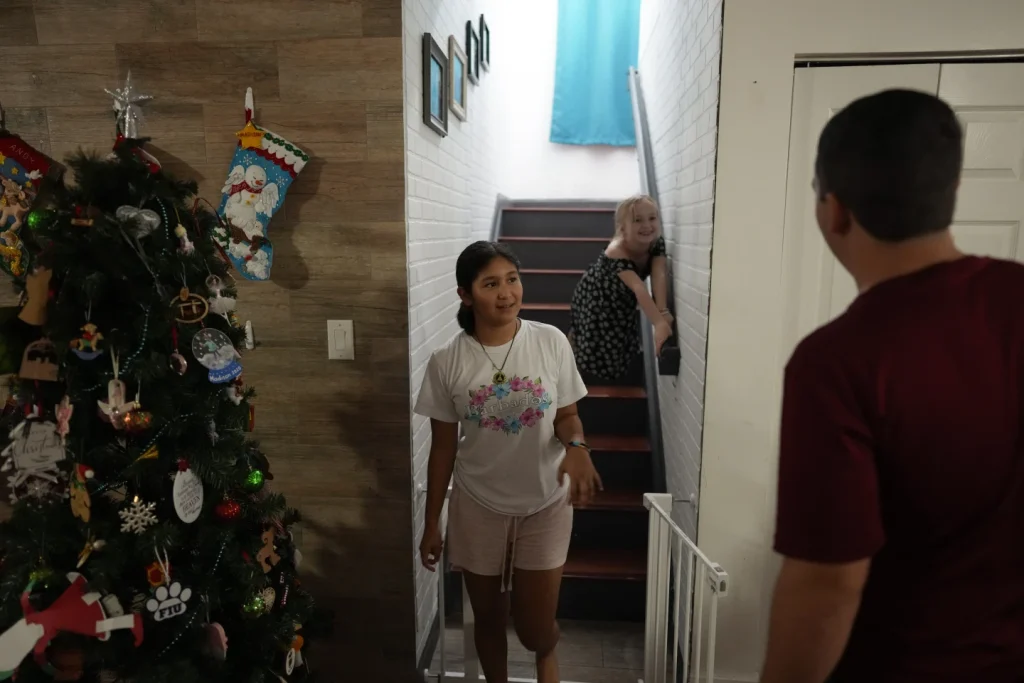
It is crucial for these children to have a supportive family setting in which to acclimate to their new country and begin the healing process.
The words of Sarah Howell, a clinical social worker in Houston, underscore the gravity of the situation, as she describes the children as living in a state of constant survival.
Therefore, it is imperative for individuals and families to step forward and provide the care and support that these vulnerable children so desperately need.
The call to action is clear: one does not need to be a perfect parent, but simply be there for these children who have already endured so much.
It is evident that there is a pressing need for more foster families to provide care and support for the children arriving in the US unaccompanied.
These children often carry a heavy emotional burden, internalizing fear and grief to such an extent that they may appear mature beyond their years, all the while grappling with the profound fear of being abandoned once again.
It takes time for these children to acclimate to their new familial environment, and for foster parents to witness glimpses of typical child or teen behavior, which signify a return to normalcy.
Bernie Vilar, a mentor working with vulnerable youth, aptly describes these children as possessing an adult age, highlighting the emotional weight they carry.
Many are burdened by debts owed to the smugglers who facilitated their journey to the US, leaving them focused solely on work, while others struggle with the mental health repercussions of witnessing death and violence during their migration.

Amidst these challenges, there are also stories of resilience and hope. Brandon Garcia’s journey stands as a testament to the resilience of these children.
Despite crossing the border alone at a young age, he found a supportive home with the Hazelton family and is now pursuing his education and building a new life.
His experience reflects the potential for positive outcomes when these children are provided with the care and support they need.
Garcia’s account of finding joy and a sense of belonging with his foster family, as well as his optimism about the opportunities available to him in the US, underscores the transformative impact of a nurturing environment.
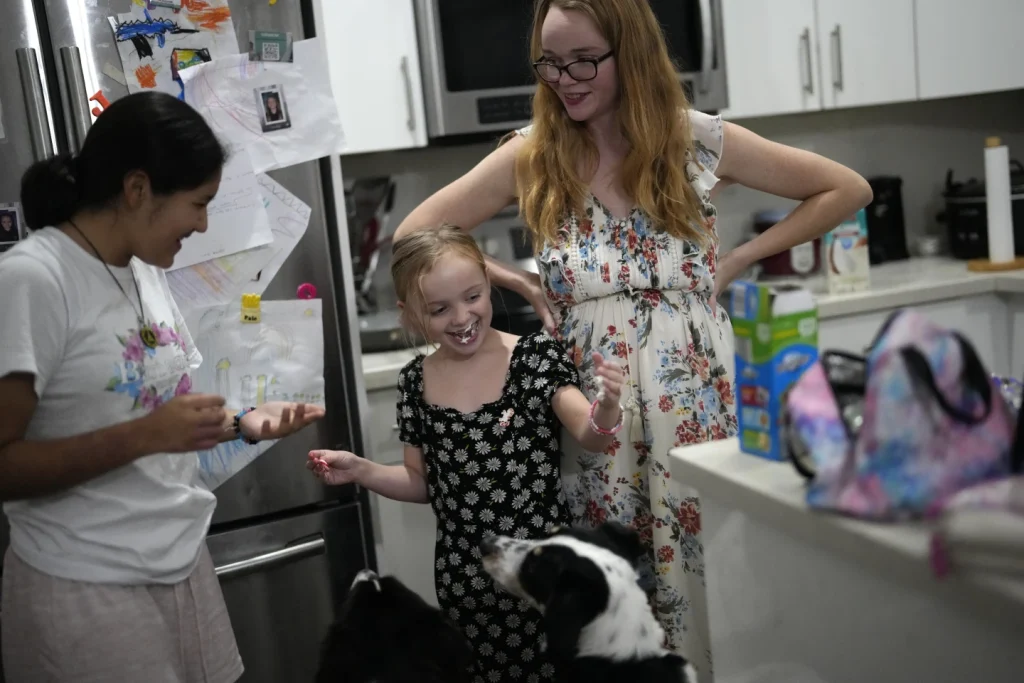
His happiness during a holiday outing with his foster family and their shared traditions exemplify the potential for these children to thrive when given the chance.
In light of these narratives, it becomes clear that the role of foster families is crucial in providing stability, care, and a sense of belonging to unaccompanied children.
By opening their homes and hearts, foster families can offer these children a chance to heal, grow, and embrace the opportunities available to them in their new surroundings.
This underscores the urgent need for more foster families to step forward and provide the support that these vulnerable children so desperately require.
